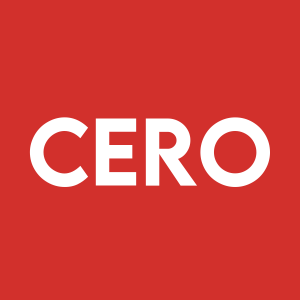CERo Therapeutics Holdings, Inc. Announces Initial Clinical Trial Site for its Phase 1 Clinical Trial of CER-1236 in Acute Myeloid Leukemia
Rhea-AI Summary
CERo Therapeutics (Nasdaq: CERO) has announced its first clinical trial site for the Phase 1 study of CER-1236 in acute myeloid leukemia (AML). The trial will be conducted at The University of Texas MD Anderson Cancer Center, led by Dr. Abhishek Maiti.
The first-in-human, multi-center, open-label Phase 1/1b study will evaluate CER-1236's safety and preliminary efficacy in patients with AML that is either relapsed/refractory, has measurable residual disease, or has TP53 gene mutation. The study consists of two parts: dose escalation to determine the highest tolerated dose and an expansion phase.
Primary outcome measures include adverse events monitoring, dose- toxicities, and response rates. Patient enrollment is ongoing, with first dosing expected in H1 2025.
Positive
- Initiated Phase 1/1b trial for CER-1236 in AML
- Secured prestigious MD Anderson Cancer Center as first trial site
- Patient enrollment already underway
Negative
- Early-stage Phase 1 trial with no efficacy data yet
- Results and potential commercialization still years away
News Market Reaction
On the day this news was published, CERO gained 18.58%, reflecting a significant positive market reaction.
Data tracked by StockTitan Argus on the day of publication.
SOUTH SAN FRANSCISCO, Calif., April 09, 2025 (GLOBE NEWSWIRE) -- CERo Therapeutics Holdings, Inc., (Nasdaq: CERO) (“CERo” or the “Company”) an innovative immunotherapy company seeking to advance the next generation of engineered T cell therapeutics that employ phagocytic mechanisms, announces its first clinical trial site for the Company’s Phase 1 clinical trial of CER-1236. The trial is focused on patients with acute myeloid leukemia (AML), and patient enrollment is underway, with expected dosing of the first patient during the first half of 2025.
The trial will be led by Abhishek Maiti, M.D., assistant professor of Leukemia at The University of Texas MD Anderson Cancer Center.
The first-in-human, multi-center, open label, Phase 1/1b study is designed to evaluate the safety and preliminary efficacy of CER-1236 in patients with acute myeloid leukemia that is either relapsed/refractory, has measurable residual disease, or has a mutation of the TP53 gene. The two-part study will begin with dose escalation to determine highest tolerated dose and recommended dose for Phase 2, followed by an expansion phase to evaluate safety and efficacy. Primary outcome measures include incidence of adverse events (AEs) and serious adverse events (SAEs), incidence of dose limited toxicities and estimation of overall response rate (ORR), complete response (CR), composite complete response (cCR), and measurable residual disease (MRD). Secondary outcome measures include pharmacokinetics (PK).
Chris Ehrlich, CERo Therapeutics CEO added, “It is encouraging to conduct our trial at one of the most renowned cancer centers in the United States, which we believe is a validation of the scientific work performed to date with CER-1236. The assignment of clinical trial sites is an important milestone. We look forward to announcing enrollment and first dosing in the near term.”
About CERo Therapeutics Holdings, Inc.
CERo is an innovative immunotherapy company advancing the development of next generation engineered T cell therapeutics for the treatment of cancer. Its proprietary approach to T cell engineering, which enables it to integrate certain desirable characteristics of both innate and adaptive immunity into a single therapeutic construct, is designed to engage the body’s full immune repertoire to achieve optimized cancer therapy. This novel cellular immunotherapy platform is expected to redirect patient-derived T cells to eliminate tumors by building in engulfment pathways that employ phagocytic mechanisms to destroy cancer cells, creating what CERo refers to as Chimeric Engulfment Receptor T cells (“CER-T”). CERo believes the differentiated activity of CER-T cells will afford them greater therapeutic application than currently approved chimeric antigen receptor (“CAR-T”) cell therapy, as the use of CER-T may potentially span both hematological malignancies and solid tumors. CERo anticipates initiating clinical trials for its lead product candidate, CER-1236, in 2025 for hematological malignancies.
Forward-Looking Statements
This communication contains statements that are forward-looking and as such are not historical facts. This includes, without limitation, statements regarding the financial position, business strategy and the plans and objectives of management for future operations of CERo and the implementation of its proposed plan of compliance with Nasdaq continued listing standards. These statements constitute projections, forecasts and forward-looking statements, and are not guarantees of performance. Such statements can be identified by the fact that they do not relate strictly to historical or current facts. When used in this communication, words such as “anticipate,” “believe,” “continue,” “could,” “estimate,” “expect,” “intend,” “may,” “might,” “plan,” “possible,” “potential,” “predict,” “project,” “should,” “strive,” “would” and similar expressions may identify forward-looking statements, but the absence of these words does not mean that a statement is not forward-looking. When CERo discusses its strategies or plans, it is making projections, forecasts or forward-looking statements. Such statements are based on the beliefs of, as well as assumptions made by and information currently available to, CERo’s management.
Actual results could differ from those implied by the forward-looking statements in this communication. Certain risks that could cause actual results to differ are set forth in CERo’s filings with the Securities and Exchange Commission, including its most recent Annual Report on Form 10-K and subsequent Quarterly Reports on Form 10-Q, and the documents incorporated by reference therein. The risks described in CERo’s filings with the Securities and Exchange Commission are not exhaustive. New risk factors emerge from time to time, and it is not possible to predict all such risk factors, nor can CERo assess the impact of all such risk factors on its business, or the extent to which any factor or combination of factors may cause actual results to differ materially from those contained in any forward-looking statements. Forward-looking statements are not guarantees of performance. You should not put undue reliance on these statements, which speak only as of the date hereof. All forward-looking statements made by CERo or persons acting on its behalf are expressly qualified in their entirety by the foregoing cautionary statements. CERo undertakes no obligation to update or revise publicly any forward-looking statements, whether as a result of new information, future events or otherwise, except as required by law.
Contact:
Chris Ehrlich
Chief Executive Officer
chris@cero.bio
Investors:
CORE IR
investors@cero.bio








